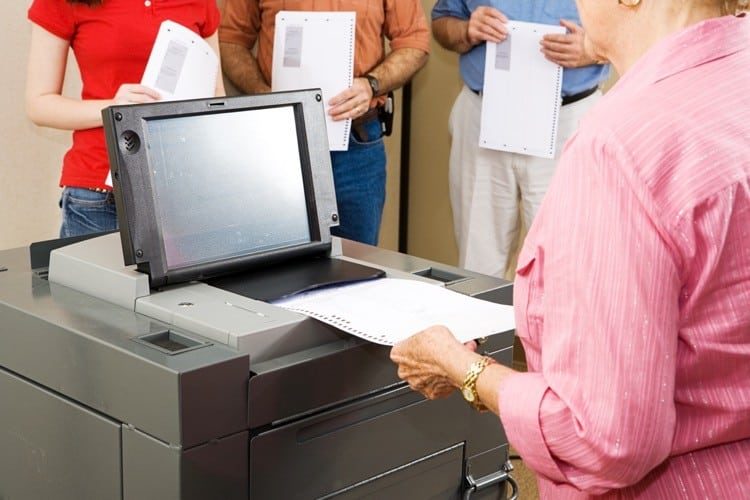
Michigan’s legislative chambers have granted the state’s Senate and House Oversight Committees subpoena powers, which will allow them a broader range to investigate allegations of voter fraud in the 2020 election.
“I’ve maintained that it is vitally important as we go forward in Michigan to ensure our election procedures are transparent, efficient and trustworthy when people go to the polls,” state House Oversight Committee Chairman Representative Matt Hall, a Republican, said in a statement Tuesday. “This stance isn’t a partisan one. It’s something we all should strive for.”
The resolution was passed in both the state House and Senate; one Democrat in the higher chamber reportedly crossed party lines to allow subpoenas to be issued to Susan Nash, the Livonia city clerk, and Detroit City Clerk Janice Winfrey, for all “information and communications” relating to the November 3 election.
According to the subpoenas obtained by Just The News, counties are being asked to provide all information used by the Absentee Voter Counting Board, along with scanners, voting machines, and the list of workers hired to be adjudicators.
This comes just two weeks after the House and Senate Oversight Committees held hearings to listen to first-hand witnesses alleging election and voter fraud.
“The House and Senate Oversight Committees have heard testimony and claims about this election. We’ve also heard from officials who have responded to those claims. These additional measures will allow us to look at the evidence and confirm the truth,” Hall said in a statement on Tuesday. “That evidence lies within records, documents and communications from local officials who oversaw election processes in communities where irregularities have been reported.”
“Surveillance footage, hard drives and other storage materials such as USB drives can deliver us additional information that will help us see how these elections functioned and where they can operate more efficiently,” he added, concluding, “This information can help complete our picture as we work to provide people throughout our state with clarity and answers they deserve — so they can have an elections system that they trust going forward.”
The New American has reported extensively on evidence of voter fraud in Michigan. For example, detailed reports from the office of Wayne County Clerk Cathy Garrett show that optical scanners at 248 of the city’s 662 precincts, or 37 percent, tabulated more ballots than the number of voters tallied by workers in the poll books.
Additionally:
- Dates on absentee ballots received after the 8 p.m. Election Day deadline were changed to indicate they were received before the deadline.
- Ballots without signatures were counted, or without any effort to match signatures, or ballots without postmarks.
- Jessica Connarn, a lawyer, said that she was told to change the date on ballots to reflect that the ballots were received on an earlier date. She even produced a photograph of a note she was given, instructing her to change the dates.
- Ballots were cast using the names of deceased voters.
- Melissa Carone, a Dominion employee (the vendor of the voting machines) saw “countless workers rescanning the batches without discarding them … which resulted in ballots being counted 4-5 times” by the “countless” number of election workers.
- 12,120 Michigan voters in the 2020 general election had previously moved out of state, and were thus ineligible.
- Almost 300,000 ballots were supposedly processed in four Michigan counting centers on November 4 in less than four hours, which is technologically impossible.
- Six-foot distancing rules were enforced on Republican challengers, but not on Democratic challengers.
The Amistad Project said at a press conference that over 548,000 ballots are at issue in Michigan. Biden “won” the state by less than 155,000 votes.
Although the Electoral College voted on Monday, giving Joe Biden more than the 270 needed to win the presidency, the fight isn’t over. Representative Mo Brooks (R-Ala.) said he is prepared to challenge the votes when they come in to be counted on January 6.
Under the Electoral Count Act of 1887, if at least one member in both the House and Senate object to any electoral votes, the chambers must debate for up to two hours over the objections. The votes can then be rejected if both chambers vote in favor of rejection.
Although victory in this regard is unlikely due to Democrats’ control of the House, a success there would mean the House of Representatives would decide the president, with each state delegation casting a single vote. Because Republicans presently control more state delegations than Democrats, this could give the president a path to victory.





